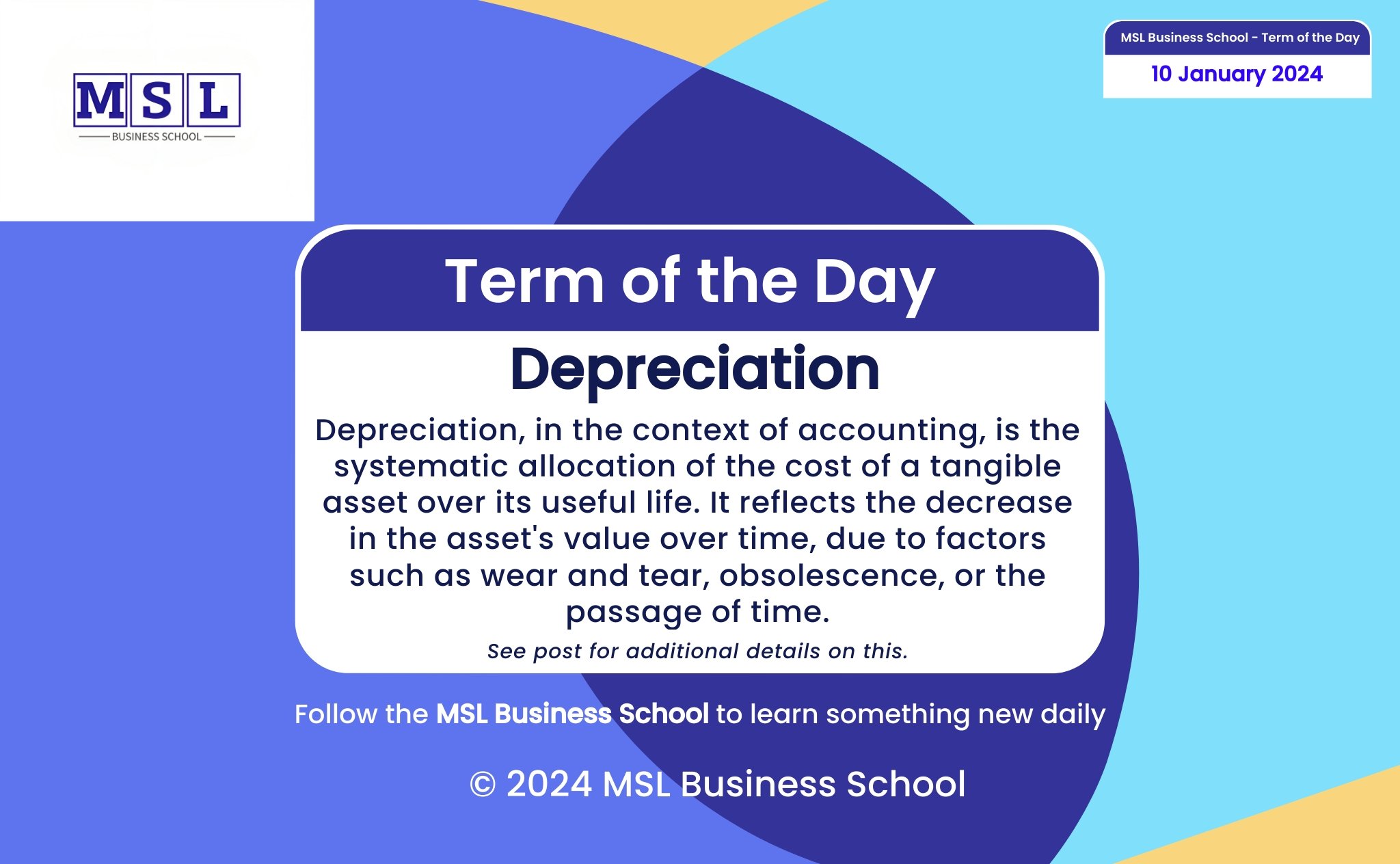Depreciation
Term of the Day - 10 January 2024
Today’s Term is “Depreciation”.
Depreciation, in the context of accounting, is the systematic allocation of the cost of a tangible asset over its useful life. It reflects the decrease in the asset's value over time due to factors such as wear and tear, obsolescence, or the passage of time.
Unlike an immediate expense, depreciation allows businesses to distribute the cost of an asset over several accounting periods, matching the expense with the revenue generated by the asset.
Various methods exist to calculate depreciation, with common ones including:
straight-line depreciation
declining/reducing balance depreciation, and
units-of-production depreciation
Straight-line depreciation evenly distributes the cost over the asset's useful life, while declining/reducing balance depreciation front-loads more depreciation in the early years. Units-of-production depreciation links the expense to the asset's actual usage.
The purpose of depreciation is to accurately reflect the true economic cost of using an asset in a given period. It also facilitates proper financial reporting, ensuring that a company's balance sheet accurately represents the current value of its assets. Understanding depreciation is crucial for financial planning, budgeting, and assessing the overall financial health of a business, as it influences net income, taxes, and the valuation of assets on the balance sheet.


